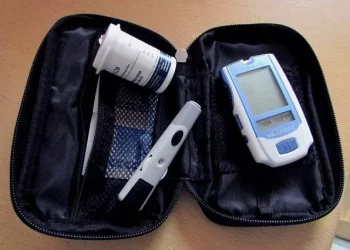In a landmark study, researchers from India and the United States have identified a new subtype of diabetes, offering fresh insights into a rare inherited form of the disease known as Maturity-Onset Diabetes of the Young (MODY). The joint study, led by the Madras Diabetes Research Foundation (MDRF) in Chennai and Washington University in St. Louis, has uncovered a previously unknown variant linked to mutations in the ABCC8 gene, which plays a critical role in insulin production.
Published in the prestigious journal Diabetes, the research focused on genetic and laboratory analyses of Indian patients diagnosed with MODY. Unlike the more common types of diabetes, MODY results from single-gene mutations and typically presents during childhood or adolescence.
“This is a major step forward,” said Dr V. Mohan, Chairman of MDRF. “By identifying this unique subtype of ABCC8-MODY, we’re moving closer to a future of more accurate diagnosis and targeted treatment, especially for young patients.”
What Makes This Discovery Unique?
The ABCC8 gene normally regulates the activity of pancreatic beta cells, which produce insulin. Most known mutations in this gene lead to increased protein activity, resulting in neonatal diabetes or adult-onset ABCC8-MODY. However, this new discovery in Indian patients revealed mutations that reduce or completely stop protein activity—a pattern typically associated with Congenital Hyperinsulinism (CHI), where children experience dangerously low blood sugar levels.
Strikingly, the patients in this study appeared to have had CHI-like symptoms in childhood but later developed diabetes—a shift from hypoglycaemia to hyperglycaemia. This paradox highlights the complex and evolving nature of genetic diabetes subtypes.
Implications for Diagnosis and Treatment
Lead researcher Prof Colin G. Nichols of Washington University explained that different mutations in the same gene can produce opposite outcomes—underscoring the need for comprehensive genetic and functional testing.
“This work highlights the necessity of precise genetic diagnosis to understand and manage MODY subtypes,” he said.
Another key insight: patients with this new subtype do not respond to sulphonylureas, a common treatment for many MODY forms, including MODY 1, 3, and 12. This resistance to standard therapy makes early genetic identification even more critical.
Why Genetic Testing Matters
While genetic testing isn’t essential for every diabetes patient, Dr Mohan emphasized that clinicians must recognize when to consider it—particularly when classical features or family history suggest MODY. “We need to train physicians to spot red flags and refer patients for testing when needed,” he said.
This study also reinforces the importance of precision medicine in diabetes care. “In oncology, breast cancers are routinely classified and treated based on molecular profiles. Diabetes care should evolve in the same way,” Dr Mohan said. “This research lays the foundation for that change.”
Looking Ahead
Though MODY remains a rare form of diabetes, this new discovery adds a vital piece to the complex puzzle of inherited metabolic disorders. The findings open the door for more personalised interventions, especially in regions like India where such genetic variations may be under-recognised.
Would you like this rewritten article adapted into a press release or infographic-style summary for patient education?
Related topics:
What to Use to Check Blood Sugar?


























